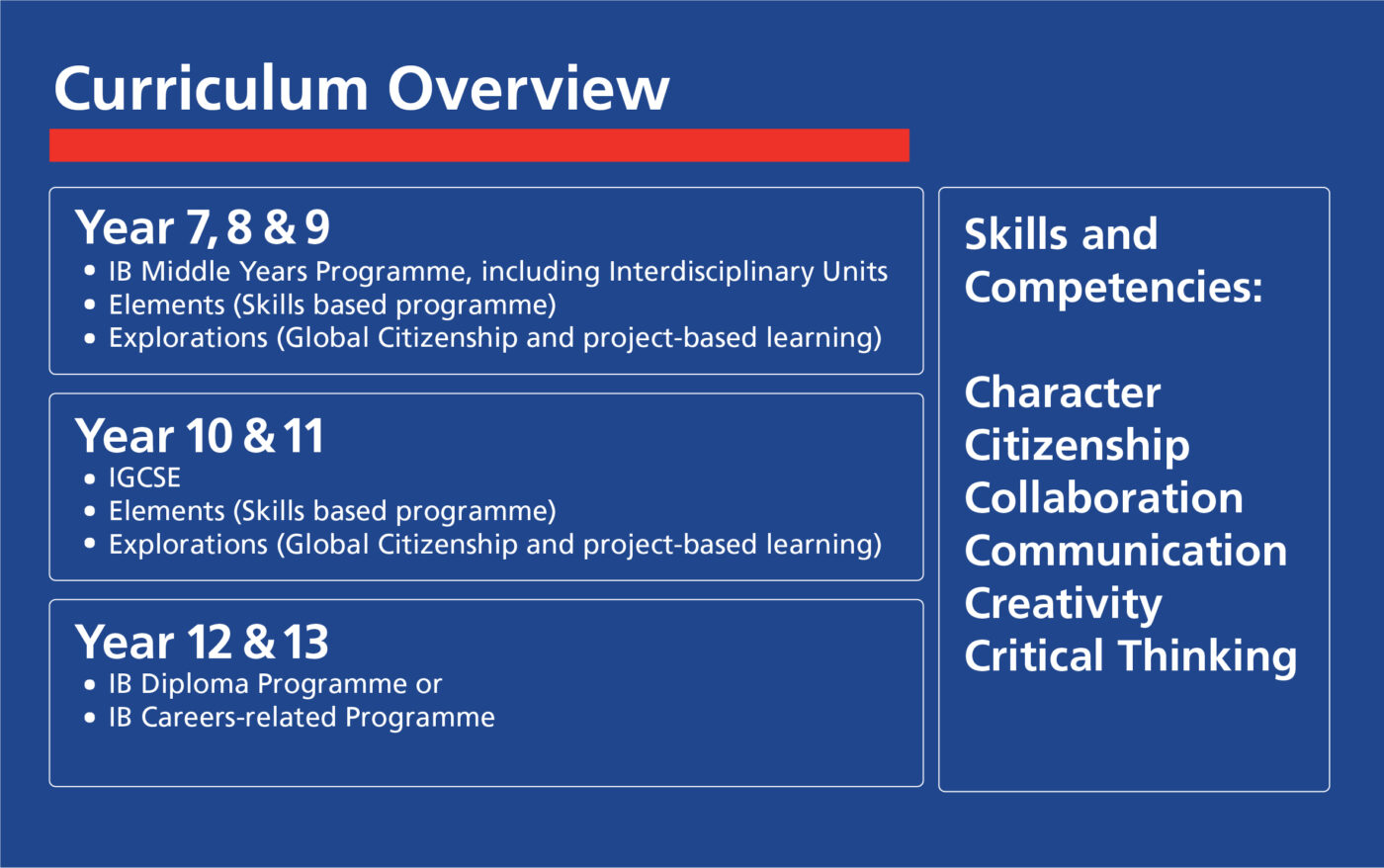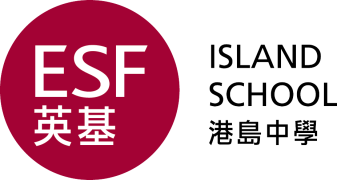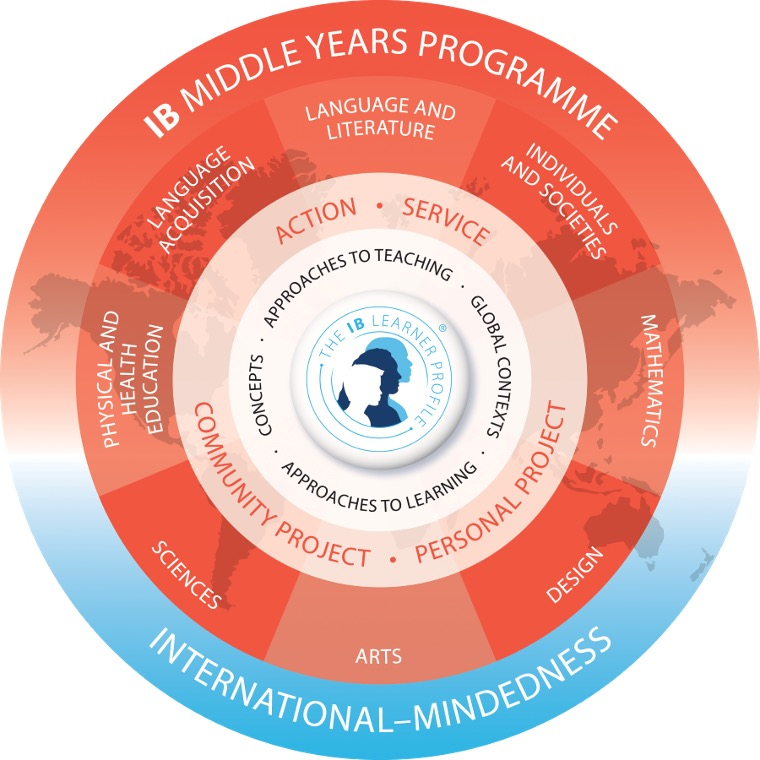Overview
In Years 12-13, students study either the International Baccalaureate Diploma Programme (IBDP) or the IB Career-related Programme (IBCP). Please see further information regarding these two pathways below:
International Baccalaureate Diploma Programme (IBDP)
The IBDP comprises six subject groups. Students choose three subjects at Higher Level (HL) and three at Standard Level (SL), along with three core components: Theory of Knowledge (ToK), the Extended Essay (EE), and Creativity, Activity, Service (CAS). A graphic below illustrates the six subject groups.
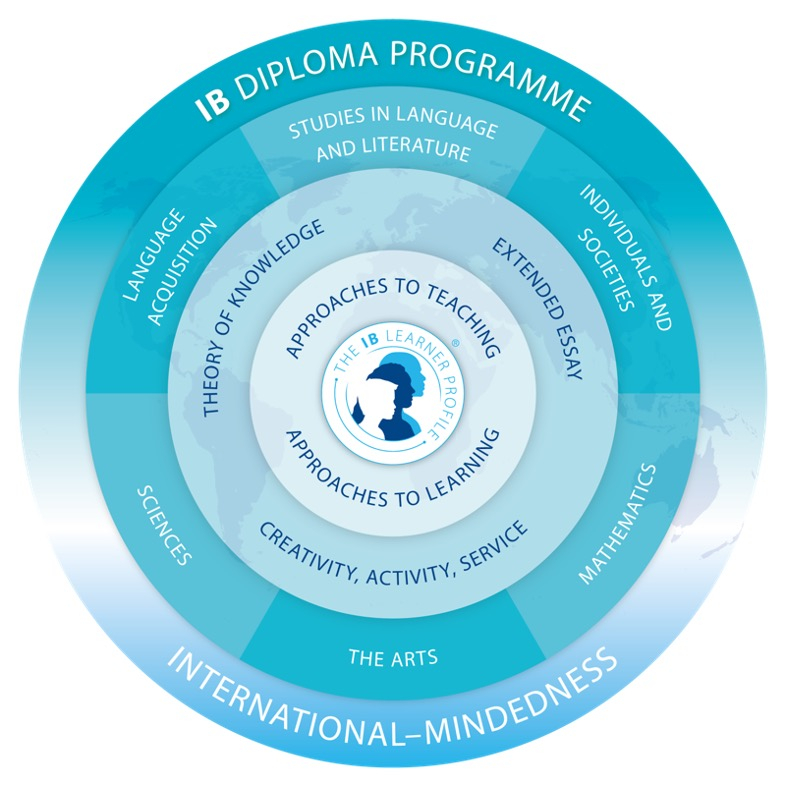
The DP is widely recognised as the best possible preparation for study at university, building research skills, encouraging independent learning and promoting personal responsibility.
International Baccalaureate Career-related Programme (IBDP)
The IB Career-related Programme (IBCP) provides a flexible, two-year program that tailors learning to individual career aspirations. By combining academic study with practical, career-related experience, the IBCP develops critical thinking, communication, and personal development skills, preparing students for a range of post-secondary options—further/higher education, apprenticeships, or immediate entry into the workforce. The IBCP is recognized by universities worldwide.
At Island School, we offer three BTEC courses; Creative Media, Business Studies and Hospitality. Students can also select two DP courses, from a wide range of options which provides academic depth and breadth. Like the DP, the IBCP also features a core, which includes; 1) Personal and Professional Skills, 2) Community Engagement, 3) Reflective Project, and; 4) Language and Cultural Studies.
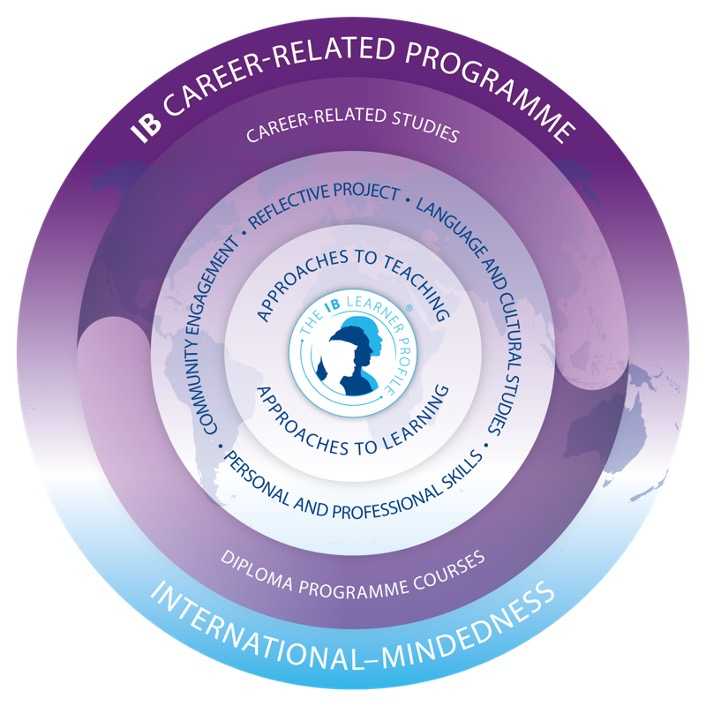
What are the broad aims for all students in these two years?
We aim for students to have a balance of depth in subjects they choose to study intensively, and breadth of understanding in a wide range of learning areas. During these two years, students should discover their strengths and build on them. They should find out what their passions and interests are and find paths to pursue them. They should be able to try a wide range of different areas of study. In Year 11, students should be well placed to make informed choices for the next phase of their education based on their strengths, skills, interests, passions and learning styles. We aim for students to enjoy the experience of school for its own sake and because students perform better in a climate of enjoyment.
How to decide between the IBDP and IBCP?
Students following the IB Diploma must choose 6 subjects, 3 at Higher Level and 3 at Standard Level. Those following the IB Careers Programme chose the equivalent of three BTEC qualifications as well as two IB subjects. It is possible to study different combinations of BTEC and IB subjects, but these will need to be discussed on an individual basis.
Both the IB Diploma and the IB Careers Programme have a compulsory core element to them. The IBDP students complete an Extended Essay, study the Theory of Knowledge and complete CAS commitments (Creativity, Activity, Service). IB Careers Programme students complete a Reflective Project, Language and Cultural Studies, and Community Engagement activities.
The IB Diploma and the IB Careers Programme both have clear routes into Higher Education. The key is choosing the pathway that is most appropriate for the individual student. It is important to research carefully during the Options process to ensure students have full knowledge of the options available to them.
It is a requirement for all students entering the IB Diploma Programme in Year 12 to have achieved five GCSEs at grade C / level 5 or above. Equivalent qualifications will be considered for new students joining Island School in Year 12.
How and when are choices made?
Options Week takes place in October and will include a Zoom Parent Information Evening. Students’ first option choices are made by the beginning of December. In the preceding weeks, these choices are reviewed, and Tutors, Heads of House, Higher Education Counsellors, Subject teachers and the IBDP and IBCP teams will review these choices and offer guidance about the choices that have been made. Each student will have an individual appointment with the Higher Education department as well as a Tutor for Learning session prior to submission of their final option choices in February.
Preliminary round options are not final. They do inform timetabling and staffing; therefore, a lack of interest in a certain course could lead to it not running. Any change requests made after the final round will be subject to availability.
How will the choices made impact the future choices at Higher Education?
The IB Diploma has gained extensive recognition and respect from leading universities across the world. The BTEC courses are also widely recognised and accepted across the world.
Different universities in different countries will have a range of requirements. For IB Careers Programme students, BTEC subjects are a UK-based qualification, so naturally, routes into UK universities are more established. We are, however, finding students increasingly progressing from the BTEC courses to universities in a range of different countries. Some of the highest performing universities may also be unwilling to offer students taking BTEC courses. It is, however, worth noting that those universities are also likely to only offer places to IBDP students with significantly high predicted grades.
In terms of IB subject choices, there may well be certain requirements to access specific courses at certain universities. For example, typically to study medicine, students should study two sciences at IB and at least one of them at Higher Level. The Island School Higher Education department will provide further advice and information on this area.
Curriculum choices for World Languages
It is important to understand that a student’s language choices must represent the most appropriate level of challenge for the student. In order to meet this IB requirement, ESF schools have clear language pathways for students and in advance of the options process, language teachers have begun one-to-one meetings with students about language pathways. In addition, we know that universities will consider the level of challenge in the programmes of study. It is important that our students are competitive in their applications and can demonstrate to universities that they have an appropriately challenging programme.
Below are the details of the pathways.
- For students currently taking Spanish, Japanese or Chinese as a Foreign Language GCSE course, the expectation is that they continue with the language at B level and at either SL (Standard level) or HL (Higher level) in Year 12.
- Students currently taking Chinese as a Second Language GCSE course and who achieve an A* or A grade/level will take Chinese B at HL in Year 12. Students who are expected to achieve B or a C grade/level may choose to take Chinese B at either SL or HL in Year 12. Students achieving below a C may wish to consider an Ab Initio course rather than continuing with Chinese B.
- Students currently taking Chinese as a First Language GCSE course and who achieve an A* or A grade/level will take Chinese A at either SL or HL in Year 12. Choosing Chinese A(at either SL or HL) as well as English A (at either SL or HL) will result in the awarding of a bilingual diploma. Students who are expected to achieve B or a C grade/level may choose either Chinese B at HL or Chinese A at either SL or HL in Year 12.
All students also have the option to broaden their linguistic and cultural understanding by taking up a new language at Ab initio level.
The Ab Initio course is designed to teach students the basics of the language and attain a level where they can competently speak, read, write and listen to specific topics at a good level. This course is welcomed by universities as they realise that the students who take it have challenged themselves to learn out of their comfort zones. The course is rigorous, but places communication at the heart of study and therefore gives every student the opportunity of scoring the highest grades.
For any students whose mother tongue is not English or Chinese, we also offer the School Supported Self-Taught course (SSST). This is a rigorous literature-based course designed for fluent speakers and is supported by the World Languages department. This is only available as an SL Language A course, and for more information please contact Mr Wheelhouse (mike.wheelhouse@online.island.edu.hk).
Global Competencies
Our students today are growing up in a world that is changing more rapidly than
at any time known to humankind. The days of set knowledge and accomplishment
based on content is over. If we want our young people to thrive in this often turbulent and highly complex time then we must alter our mindset not on what they know, but what they can do. The six global competencies outlined opposite describe the skills and attributes needed for learners to flourish as citizens of the world.
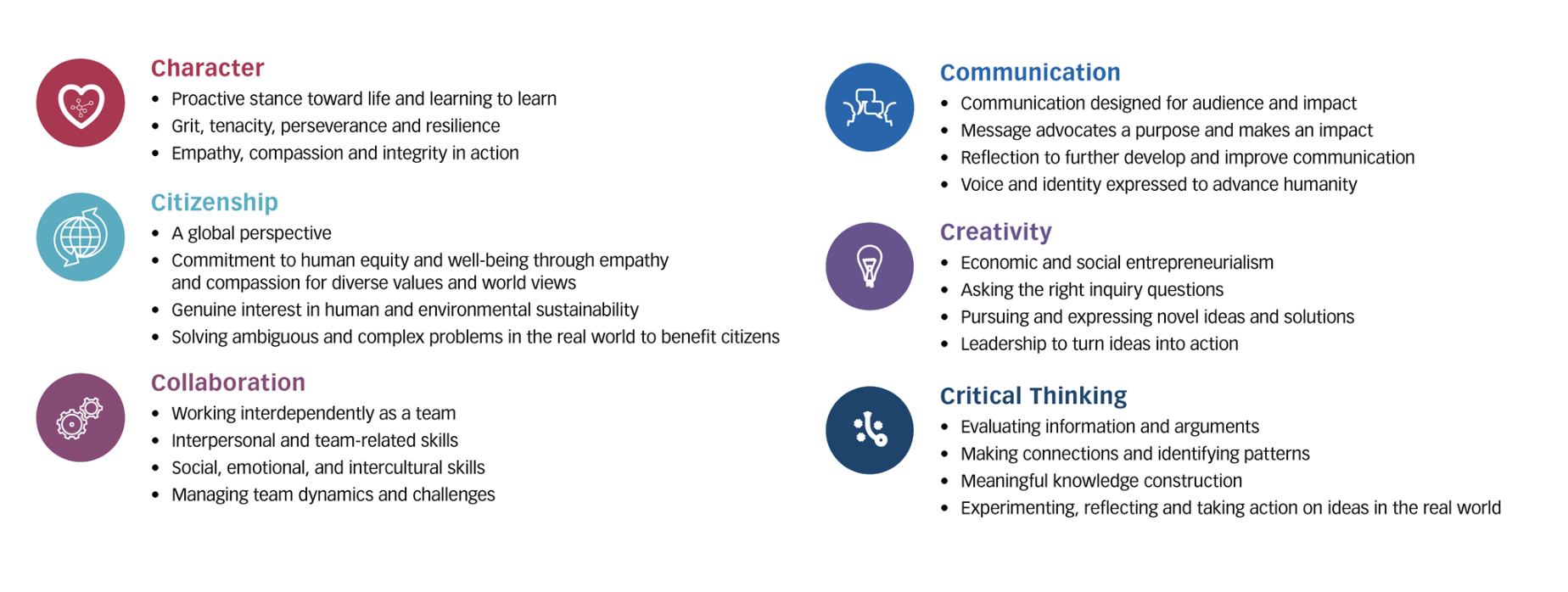
Elements
Elements is a cornerstone of school life at Island School, offering students the freedom to explore a diverse range of subjects beyond the confines of the core curriculum. This allows students to pursue their individual passions and explore advanced content in diverse subject areas, fostering curiosity and inspiring continued learning.
The Elements program offers significant benefits for student engagement, motivation, and well-being. By allowing them to select subjects that genuinely interest them, Elements promotes a sense of ownership and deeper engagement with learning. This personalised approach can reduce stress, boost self-esteem, and create a more positive overall school experience.
Importantly, Elements is highly effective in the development of global competencies—critical thinking, citizenship, collaboration, creativity, and communication—equipping students with the skills and mindset necessary to thrive in an ever-evolving global landscape.
Explorations
Explorations provides a rich and varied learning experience for Island School students, promoting inquiry and the development of global competencies. In Year 7, students study a multidisciplinary unit focused on food sustainability. This encourages students to explore real-world challenges through collaborative and inquiry-based learning. This unit provides a valuable opportunity to consider the interconnectedness of environmental, social, and economic systems.
The Explorations program also includes "Solo E" in Year 8, which provides a valuable opportunity for personalised learning. Through independent research and project development, students develop skills in self-directed learning, critical analysis, and creative problem-solving.
- The Explorations curriculum leads to pursuing a GCSE in Global Perspectives. This represents a rigorous academic pathway for students to engage with complex global issues, develop advanced analytical skills, and essay writing which provides an excellent foundation for future academic endeavours, particularly the demands of the Diploma Program.
